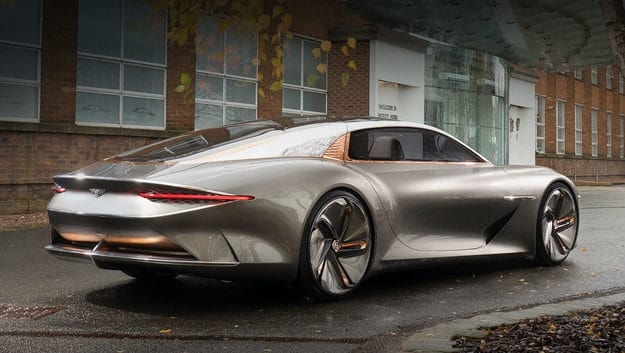
Bentley participates in the OCTOPUS project
Bentley is involved in the OCTOPUS, a three-year research project, which translates to octopus, but as an acronym, has a long definition: optimized components, testing and simulation, powertrain toolkits that integrate ultra-high-speed engine solutions, test and simulation, tools for electric motors using ultra-high speed motors. This means that a high-speed electrical unit has been designed and tested, built into the drive shaft. “Optimized components” refers to parts and materials that can replace rare fossil permanent magnets and copper coils.
Bentley CEO Adrian Holmark has already admitted that the brand's first electric car will be released in 2025 and will be a sedan. The Crewe-based company has created two battery concepts: the EXP 100 GT (pictured) and the EXP 12 Speed 6e.
Prior to Bentley's inclusion, the project had been in development for 18 months, so we can now take a look at the OCTOPUS E-axis module. It combines two electric motors (side), a transmission (in between) and power electronics. Keep in mind that there are many such all-in-one designs.
The study is funded by the British government through OLEV (Low Emission Vehicles Service). Along with Bentley, Octopus has nine other partners, whose names need not be listed. Let's just say the British Advanced Electric Machines Group is responsible for motors and transmissions, and Bentley takes over the integration of the module into an electric vehicle, tuning and testing the system. In the field of electrical work promises "breakthrough" and "revolutionary performance". The OCTOPUS won't find practical use until 2026, so Bentley's electric car won't hit the market in 2025.